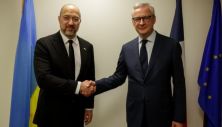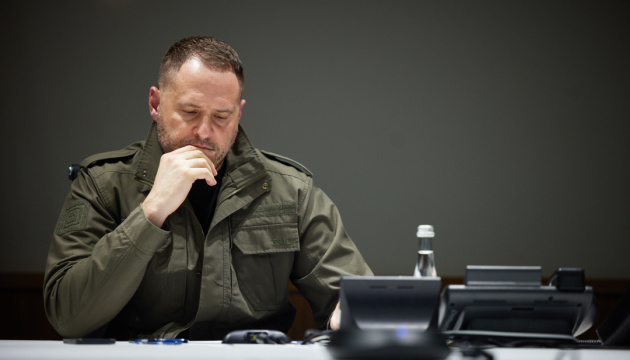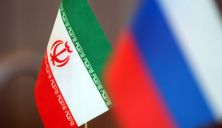The International Working Group on Russian Sanctions has developed the fifth Paper of the Working Group on the topic “The Case for Designating the Russian Federation as a State Sponsor of Terrorism”. The document explains in detail the essence and features of the status of a State Sponsor of Terrorism envisaged by American law, and the need to include Russia in the list of countries with SST (State Sponsor of Terrorism) status.
The consequences of the official designation of Russia as a State Sponsor of Terrorism for Russia itself and the US or Canada were assessed. Working group experts assessed the risks and suggested potential mitigation strategies for many of them.
The document provides factual data confirming the compliance of the actions of the Russian Federation with the definition of “terrorism”. In practice, Russia’s crimes in Ukraine are worse than “sponsoring terrorism”, since the main perpetrator of these acts of terrorism is the Russian armed forces, a key institution of the Russian state. The type, scale and purpose of the deliberate, politically motivated violence that the Russian state uses against Ukrainian non-combatants is appalling. The U.S. Department of State should designate the Russian Federation as a State Sponsor of Terrorism. A similar designation should be made by the Canadian government.
Experts describe in detail the main consequences: restrictions on transactions, loss of sovereign immunity, secondary sanctions, individual sanctions, and symbolic impact.
This designation would increase pressure to add Russia to the blacklist of the Financial Action Task Force (FATF). It would also restrict foreign assistance from the United States and from organizations in which the U.S. is a member; ban all arms-related exports and sales; strengthen even further the controls over exports, re-export, and transfer of dual-use items; and put in place additional financial restrictions.
The designation of such status for Russia would make it easier and more likely for the U.S. to impose secondary sanctions on third parties transacting with the Russian state and private sector entities. With the SST designation in place, the U.S. and its allies could impose financial and trade sanctions on any country that continues to cooperate with the Russian state. This threat of secondary sanctions would increase the probability of compliance with sanctions already in place, thus enhancing their credibility and enforceability.
The designation would also greatly increase the scrutiny of many Russian private sector entities and individuals by international counterparties. Potential business partners would need to take extra care in their due diligence and Know-Your-Customer (KYC) research.
The complicated diplomatic, legal, and economic implications for the U.S. and potentially for other members of the sanctions coalition in imposing this designation on the Russian Federation were noted.
However, the paper argues, the laws that allow designation of such status in the United States provide sufficient flexibility to develop effective mitigation strategies for most of these problems.
The designation would bring more global attention to the nature of the Russian regime and the atrocities and terror that it has committed against innocent Ukrainian civilians. It would substantially increase the scale, scope, and effectiveness of the sanctions imposed on the Putin regime.
As for mitigating the risks, first of all, the legislation provides for the possibility of cooperation with Russian entities in joint humanitarian efforts.
It is noted that a waiver could be added to the SST designation that would allow contact with Russian diplomats when American national interests were being advanced. For example, even while Iran was designated as a state sponsor of terrorism, officials negotiated directly with Iranian diplomats to conclude the Joint Comprehensive Plan of Action (JCPOA).
To reduce fears that American claimants in the U.S. might drain some Russian government assets currently being held in the United States and other banks in the democratic world, the U.S. government could stipulate that these assets are exempt from potential lawsuits and instead will be used for Ukrainian reconstruction.
There could be a condition that if Russia’s armed forces left Ukraine and therefore stopped terrorizing the Ukrainian population, then the designation would be lifted. The U.S. House of Representatives and the Senate could commit to this trigger for lifting the designation in a joint resolution. Doing so in advance might create greater incentives for Putin to end his war.
Given the costs of witnessing terrorist acts and doing nothing in response, the Yermak-McFaul Group believes that the benefits of proceeding with SST designation for the Russian Federation outweigh the risks, which, in turn, can be mitigated.













